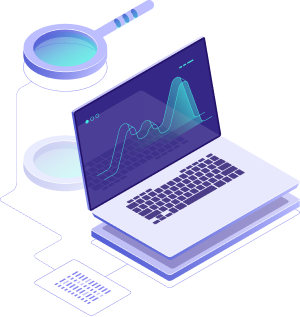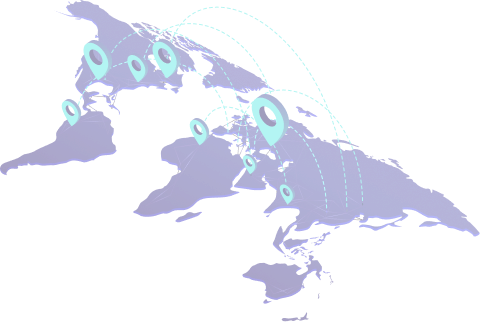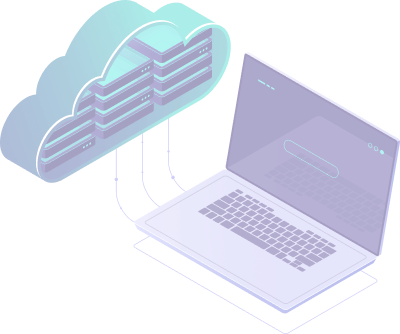SERP tracking with proxies:
Automate rank monitoring without giving up on speed and accuracy of the data
Avoid bans, get unbiased data fast, and make informed decisions regarding your SEO strategy

You need proxies for SERP tracking if you
- Want to get objective ranking data fast
- Look for a way to effectively automate rank tracking processes
Proxies to ensure smooth rank monitoring
You have to constantly check different keywords to keep track of your position in a search results list. It means sending a lot of requests within a short period of time. As it doesn’t look like real user behaviour, search engines may present you with a captcha to verify you’re a human. That may pose a serious problem if you execute special apps or scripts to automate the process of monitoring. It may even lead to blocks. In both scenarios, the end result will be the same: you cannot get hold of SERP data.
Proxies make it look like all the requests come from different people from different areas and timezones. When you use a proxy server, you connect to it instead of the target server. This way, search engines will see proxy IPs and won’t know your real address. They won’t figure you out. By covering yourself with a proxy, you can go unnoticed by search engines and still monitor your search results effectively.
Proxies to get geo-specific data
Among the things that your IP reveals about you, your location is present. You may stumble upon that, as whatever you look for, search engines will automatically adjust search results. Options that are relevant to your place of being will appear higher than others. With it, you’ll get biased keyword data that may lead to you making uninformed decisions and risking your business. If you want to analyze foreign markets, that’s also impossible to do with one and only IP.
You can overcome that obstacle by implementing proxies from different locations. This way, you can check SERPs for different areas and get the real picture regarding your rank in various places. Proxies will also help you learn about foreign markets’ tendencies.


Proxies to get concurrent information
SERP monitoring is valuable only if you get fresh data. It’s sometimes hard to achieve, as you have to check numerous keywords. Even if you use automated tools, monitoring requires time. This may be critical, as you have to react quickly to changes in search engines’ algorithms and in competitors’ SEO strategies.
Proxies can solve that problem and increase the speed of your research by providing you with connection threads. For example, at DataImpulse, you can use up to 2000 IPs simultaneously. That’s as if monitoring search results from 2000 devices at once. It will noticeably increase the speed of your research and multiply your chances of keeping up with algorithms and competitors and staying high on a search results list.
Proxies to get unbiased monitoring results
Your cookies, preferences, and search history influence what you see on a search results list. For example, if you visit your website often, it will appear high when you check SERPs. However, it doesn’t mean that’s your real position. To get trustworthy information about your rank, you should hide everything that can personalize the results of monitoring.
Proxies are a reliable way to disguise yourself. This way, you can see what other users see when searching for related keywords. Such a method allows you to learn about your real position and adjust your SEO strategy accordingly.

With DataImpulse, you can
- Get 24/7 human support, even on weekends and at night
- Personalize your proxy settings via our intuitive dashboard
- Have proxies compatible with different SERP tracking apps

Residential proxies at a reasonable price
Residential IPs are addresses of in-house gadgets. They are authentic, not server-generated. With them, it’s easy to pose as a regular user and check your rank while minimizing the risk of captchas and blocks. DataImpulse offers you more than 15 million residential addresses from 194 locations. On our website, you can easily check how many addresses are online and available right now. You can also get a country plan if you need IPs from a particular area. At the same time, you don’t have to drain out all your budget on proxies, as we offer you an affordable price of $1 per 1 GB. You don’t have to buy a plan and then hurry up to use it, as we operate on a pay-as-you-go pricing model. Use your traffic as fast as you need.








